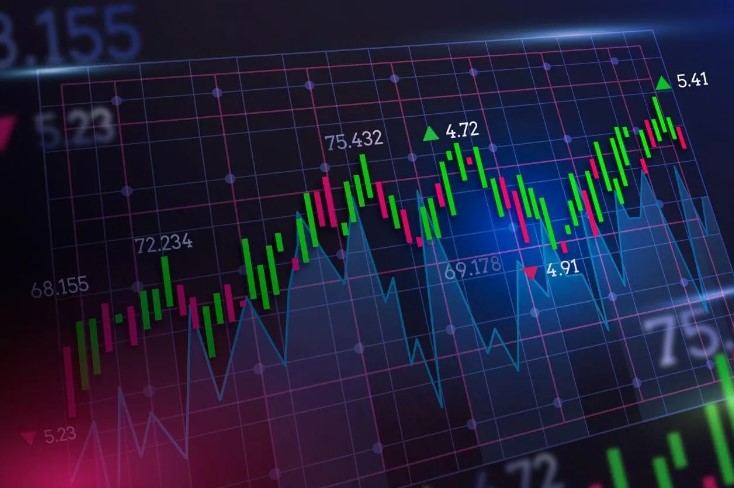How to Revitalize the World Bank, the IMF, and the Development Finance System

As the world’s finance ministers vacation to Washington for the yearly spring meetings of the Planet Financial institution and the Worldwide Monetary Fund (IMF) upcoming 7 days, humanity’s potential hangs in the stability. Local weather transform threatens to make the globe possibly inhospitable or unhabitable for billions of men and women. The world economic system is generating far more poverty, hunger, and despair. And an unjust war in Ukraine is creating disastrous implications for vulnerable persons just right after a pandemic that did the identical.
Every region is dealing with this mix of compounding crises, yet each individual country has not been affected in the same way. Nor does each region have the very same signifies to stand up to these troubles, permit by yourself overcome them. Loaded-countries, following stoking their economies with trillions in fiscal and financial support in recent years, have lately elevated interest prices to handle inflation, so far without suffering the deep recessions that numerous feared. In contrast, lower-earnings nations around the world that could not respond to the pandemic with stimulus packages and quantitative easing are now swamped by debt and projected to expand considerably slower than anticipated or desired for sustained enhancement. Unsurprisingly, hundreds of hundreds of thousands of people in people countries are slipping driving: poverty and hunger have greater though measures of wellness treatment, education and learning, and gender equity have considerably declined.
Regretably, even with several warnings and pleas, the Entire world Bank, the IMF, and other worldwide economic institutions—and their wealthy shareholders—have not yet done ample to conquer this inequity. Some of their struggles are easy to understand. Many of these businesses have been proven in 1944 to help rebuild countries right after Globe War II they were not made to counteract numerous world crises at the similar time. But too numerous of their existing-working day struggles stem from plan choices. Wealthier countries have neglected to honor former commitments, including pledges to devote at the very least .7 percent of their GDPs on international support and to mobilize $100 billion a 12 months for local weather action in building international locations. And the Earth Financial institution and IMF have struggled to tailor their instruments to guidance nations in this moment of profound need to have.
As a outcome, these institutions—which have completed so a great deal good in the earlier and even now characterize hope to so many—are no more time ready to meet their missions. The result is a elementary breakdown of the approximately 80-year-previous covenant concerning wealthier countries, which have pledged to aid institutions these as the World Financial institution and the IMF and to assist lift up the most susceptible and make a much more affluent and steady planet for every person, and poorer kinds, which have made use of this support to invest in advancement initiatives that boost inclusive progress and bolster their persons.
Upcoming week’s conferences are the very first of many periods this year in which nations will have a chance to restore that covenant. Billions of persons about the earth understandably doubt no matter whether everything can be performed. And the meeting’s agendas so considerably offer you very little motive for optimism they hardly scratch the area of what is achievable and essential. Despite a very long checklist of reforms available by a broad range of persons and establishments from across the globe, a remarkably limited number of proposals is currently up for acceptance future week.
The Environment Bank, the IMF, and their shareholders and leaders facial area a alternative: they can develop solidarity around widespread issues, or they can further more sap the trust that has underpinned multilateralism for many years and that will be important to generating the 20-initial century more prosperous, reasonable, and tranquil. The concern following week is whether or not they definitely believe that that we are all in this alongside one another.
Enable ON THE WAY?
The progress finance method was set up in reaction to the entire world wars of the twentieth century. To make the postwar environment affluent and steady more than enough to keep away from a further world wide calamity, dozens of nations around the world arrived alongside one another in 1944 in the shadows of the White Mountains, near Bretton Woods, New Hampshire, to develop the Entire world Bank, the IMF, and other institutions and agreements to support countries construct or rebuild, endure economic shocks, and trade freely.
For a long time, the technique served assistance the expansion that enabled Europe’s restoration and Asia’s increase and aided billions climb out of poverty. Yet in modern yrs, the procedure has struggled. The issue has not been inadequate devotion on the part of the establishments, which are staffed by persons who perform tirelessly, usually in tough and dangerous options. Alternatively, the challenges have been because of in aspect to the nature and scope of the present-day crises, which have affected every single state concurrently and which have in numerous conditions unwound past development. The institutions have also been held back by their personal levels and layers of out of date principles and treatments. Despite fantastic intentions and superior operate, they are slipping quick.
Just take, for example, their performance throughout the COVID-19 pandemic. At the top of the pandemic, the IMF, the World Bank, and other folks took heroic actions to ward off economic collapse, but they proved insufficient. With constrained external help, low-cash flow nations had been in a position to mount only confined responses to the disaster, mobilizing just two percent of GDP, on typical, to stimulate their economies, while richer counterparts have been mobilizing 24 percent of their GDPs, on regular. That discrepancy is just one rationale why immediately after rising by 6 {9f99fe44fce1aa3c813d0a0ce4da2fbea8a5a58e9d85c4a2927dd8140cb676b5} a 12 months from 2000 to 2010, acquiring nations around the world are predicted to mature by an common of only 4 percent for each year by way of 2030.
Even that low amount of development is in no way certain, given large stages of personal debt. For case in point, in accordance to the Earth Bank’s assessment, the community and personal credit card debt held by countries qualified for its progress guidance tripled in excess of the last decade. And the weather crisis will make people balance sheets even even worse. New analyses expose that building nations will require $1 trillion to $2 trillion in finance per 12 months, much of it in the type of investments in local climate resilience and methods to make up for loss and destruction caused by intense weather. They are currently obtaining only a small fraction of that amount.
This facts is why the IMF has anxious about a “great divergence” and the Environment Lender has predicted a “lost ten years.” Further than the information and projections, a extra profound judgment is distinct: when humanity is going through some of the gravest crises in record, an insufficient response has still left international locations and people feeling more and more alone. Farmers in Sudan confront for a longer time and more intense droughts and floods. Workers at salt pans in India toil in relentlessly soaring temperatures. And billions of other individuals across Africa, Asia, and Latin The united states view helplessly as livestock die off, food items selling prices soar, and currencies spiral.
A NEW HOPE
In the previous number of years, nonetheless, a new consensus has made all-around the belief that a single of the greatest hopes for scaling the investments and innovations essential to meet today’s crises is to revitalize and augment the enhancement finance program. A broad, various team of latest and former governing administration officials, activists in vulnerable communities, aid groups, humanitarian and philanthropy businesses, and scholars have designed particular proposals and reforms.
Last summer months, the two of us—together with UN Deputy Secretary Standard Amina Mohammed and the Open Culture Foundations—brought collectively non-public, general public, and philanthropic leaders in Barbados, to talk about revitalizing the program. Jointly, we introduced the Bridgetown Initiative, which seeks to advance and garner assist all-around particular ideas. At the identical time, the G-20, the V-20 (a team of 20 nations around the world that are significantly susceptible to climate modify), and the African Improvement Financial institution, amongst other individuals, are actively advancing some of these proposals. French President Emmanuel Macron is also bringing earth leaders to satisfy in Paris in June for a unique possibility to talk about this agenda.
The new consensus facilities on a handful of core ideas. Initially, countries want new strategies to minimize unsustainable financial debt stages and make investments for the long run, as a substitute of basically servicing obligations from the earlier. Just one stage in this direction would be fixing the G-20 Common Framework for Financial debt Solutions, which is the mechanism for restructuring and minimizing credit card debt burdens, in element, by like agency deadlines on the restructurings (quite a few of which have lingered for decades unresolved). The G-20’s Financial debt Service Suspension Initiative, which briefly paused principal and fascination payments on official bilateral money owed through the pandemic, could be prolonged and improved to go over a broader selection of money owed, like personal sector ones. Taken alongside one another, these types of variations can give states drowning in debt a lifeline and inspire the sorts of investments essential for the 20-very first century.
Devoid of action this calendar year, the guarantee at the main of the global economic purchase may possibly be damaged for very good.
The IMF should really also prolong the time horizon of its debt sustainability assessment by many years, which would enable international locations to borrow extra these days by assuming extended timelines to deal with present-day and potential obligations. The fund need to also affirm that not all financial debt is the similar by adopting new metrics that would treat personal debt incurred from expenditure in weather resilience as fiscally prudent and for that reason inspire the types of adaptation and mitigation investments that benefit anyone.
At the very same time, international locations could do additional to assistance avoid liquidity crunches from getting debt crises by channeling unused IMF Unique Drawing Legal rights, which can efficiently augment member countries’ official reserves, to countries at possibility and in will need of liquidity today. The fund could also raise access limits to its fast financing amenities and quickly suspend desire price surcharges for major borrowers when there are crystal clear symptoms of worldwide economic stress, as there are now. The IMF moved urgently to support Ukraine in its darkest hour, as it must have. Other countries should have the identical urgent reaction, supplied the horrible human expenditures they are facing.
A 2nd theory is that nations around the world need access to additional loans at beneath-sector rates. Thanks to the work of a G-20-appointed unbiased fee, it is apparent that multilateral growth financial institutions, this kind of as the Planet Bank, could use their equilibrium sheets considerably extra aggressively to unlock several hundreds of billions in new lending. These financial institutions really should increase the amount of capital—including money that can be lent at decreased rates—available for acquiring economies and offer you lending devices with prolonged maturities of even up to 50 decades. They need to also target additional on attracting and leveraging non-public funds investment in susceptible and struggling nations.
Last but not least, the public, private, and philanthropic sectors need to perform with each other to expand obtain to community goods. Technological breakthroughs will continue on to profit humanity. But the absolutely free market place on its individual will also normally provide these innovations to the wealthiest to start with and to the most susceptible substantially later—if at any time. Just one way to address this dilemma is through public-private platforms these types of as Gavi, which provides vaccines all around the planet by pooling contributions from governments, philanthropies, and establishments to purchase and distribute immunizations at scale. The World Energy Alliance for Folks and Planet is getting this solution to far more equitably distribute renewable electrical power systems. Similar initiatives could support scale advances in agriculture and other large-precedence sectors.
Keep THE Faith
The covenant amongst wealthier nations around the world and lower-earnings ones has always been rooted in a shared curiosity in living alongside one another in a additional stable, healthier, and affluent planet. A reimagined improvement finance system would assistance that intention, like by offering reduced-earnings and center-income nations the assets they have to have to tackle poverty and local climate change. Some observers have fearful that reforms would threat prioritizing climate adaptation and mitigation at the expense of poverty eradication, which is the overwhelming focus of the poorest countries. But this is not an either-or proposition. With the proper reforms, the procedure can overcome the two issues at the same time—and profit absolutely everyone by building the world a lot more prosperous, secure, and much better able to meet the local climate challenge.
Other people argue that the prospective clients for reform are slim, provided the world’s target on Ukraine, expanding tensions in between great powers, and the very long-standing reluctance of some institutional leaders to modify. But all people really should figure out that, with out a extra major multilateral hard work, the twenty-first century will be less prosperous and a lot more unsafe for every person. What comes about upcoming 7 days will signal the world’s willingness—or deficiency thereof—to tackle today’s crises with a emphasis on long-phrase gains fairly than quick-expression payback. Without motion this year, the promise at the main of the world financial order could be broken for excellent. But with the right agenda, the procedure can be restored and revitalized.
Loading…


/cloudfront-us-east-2.images.arcpublishing.com/reuters/ZCBLZFTVOBJ5VO6T54IKZBEFYI.jpg)




